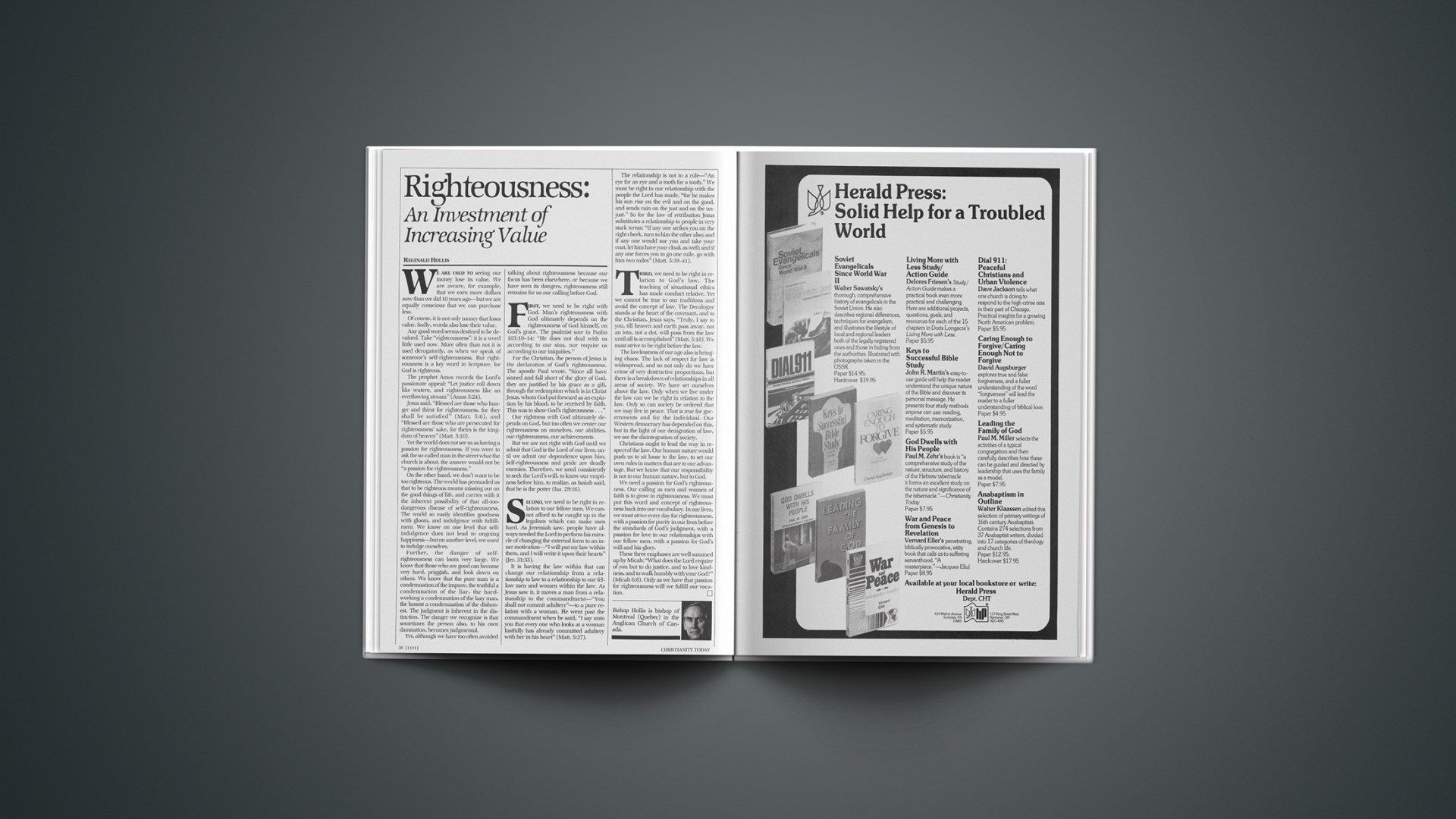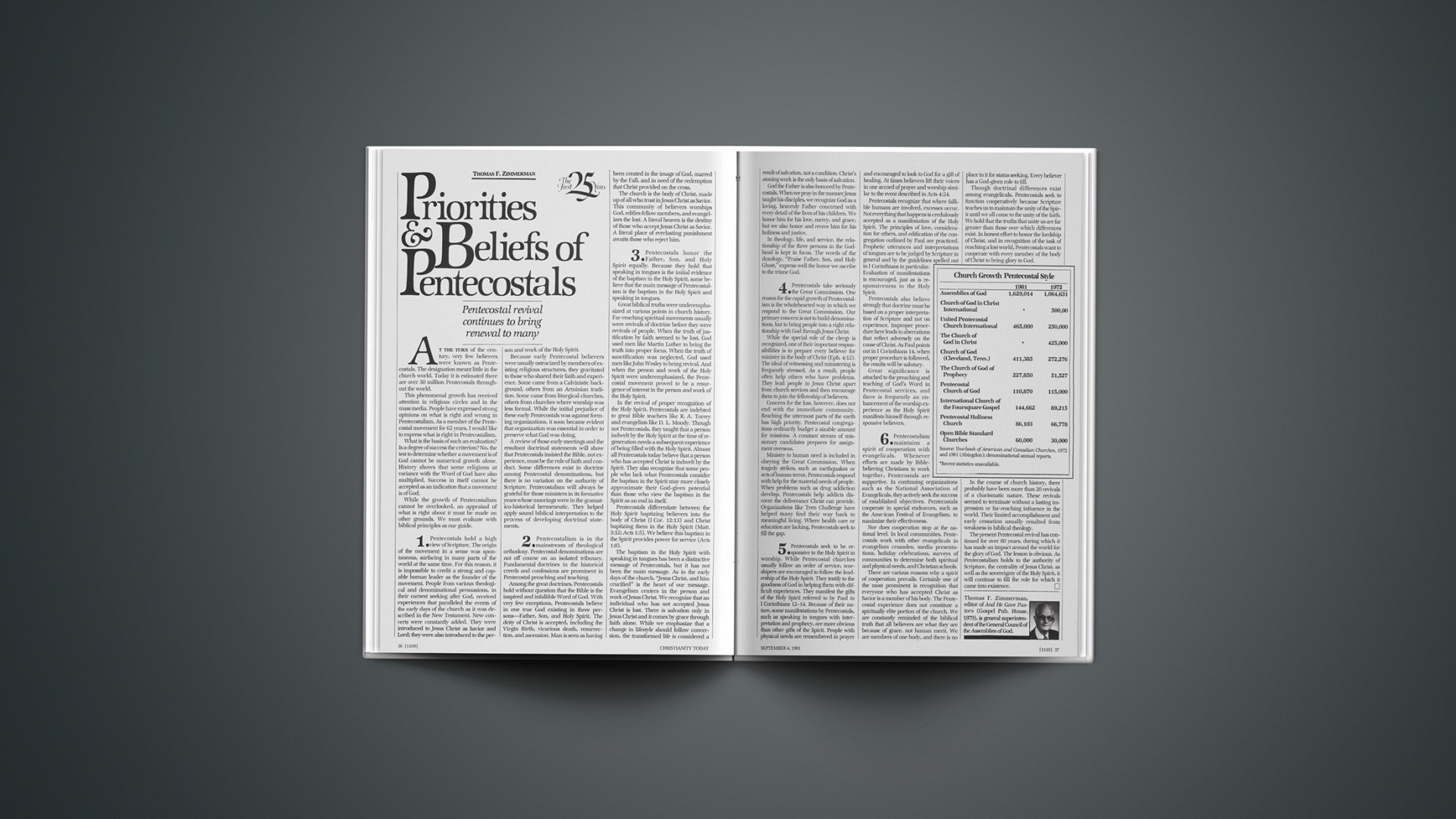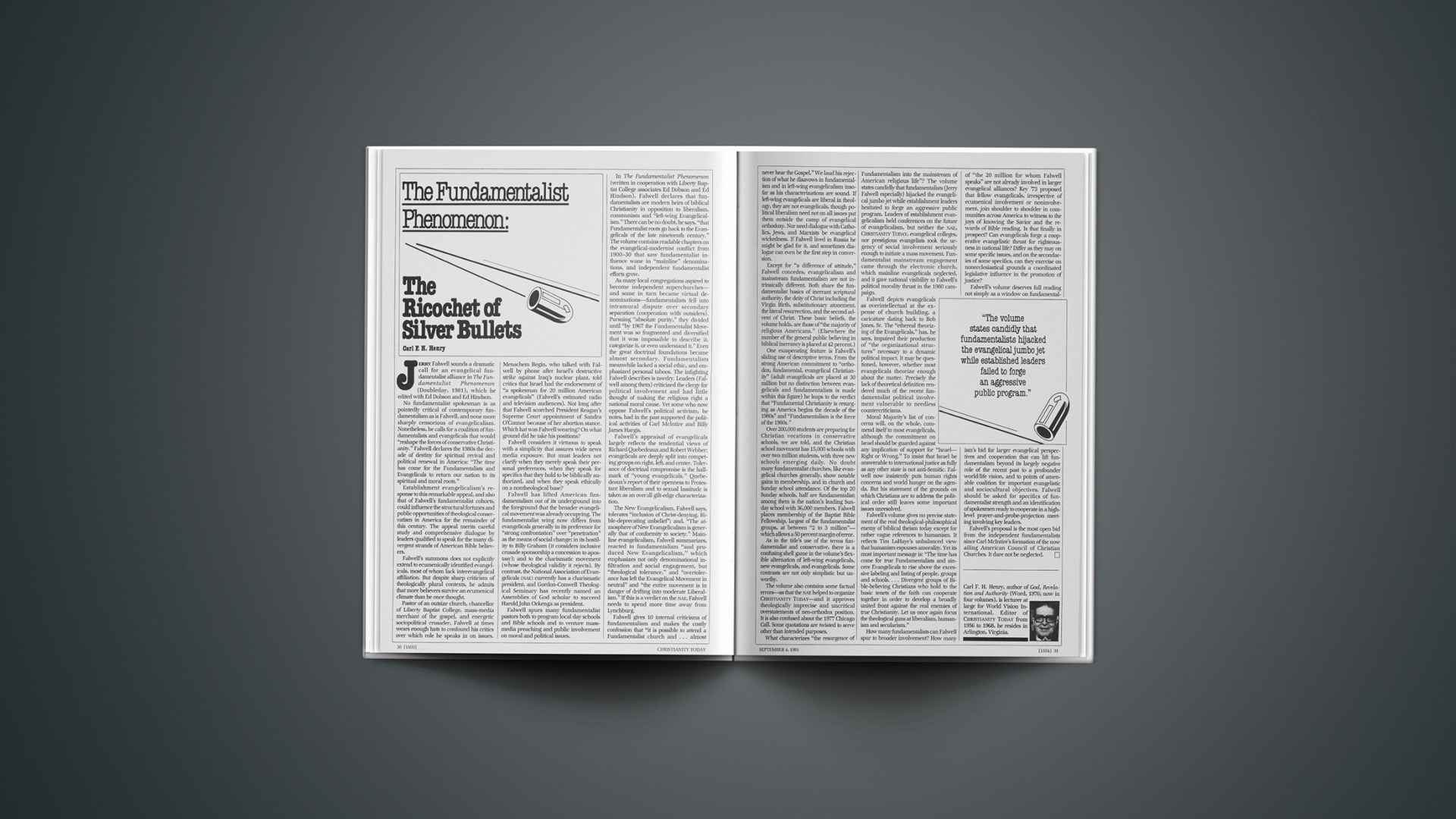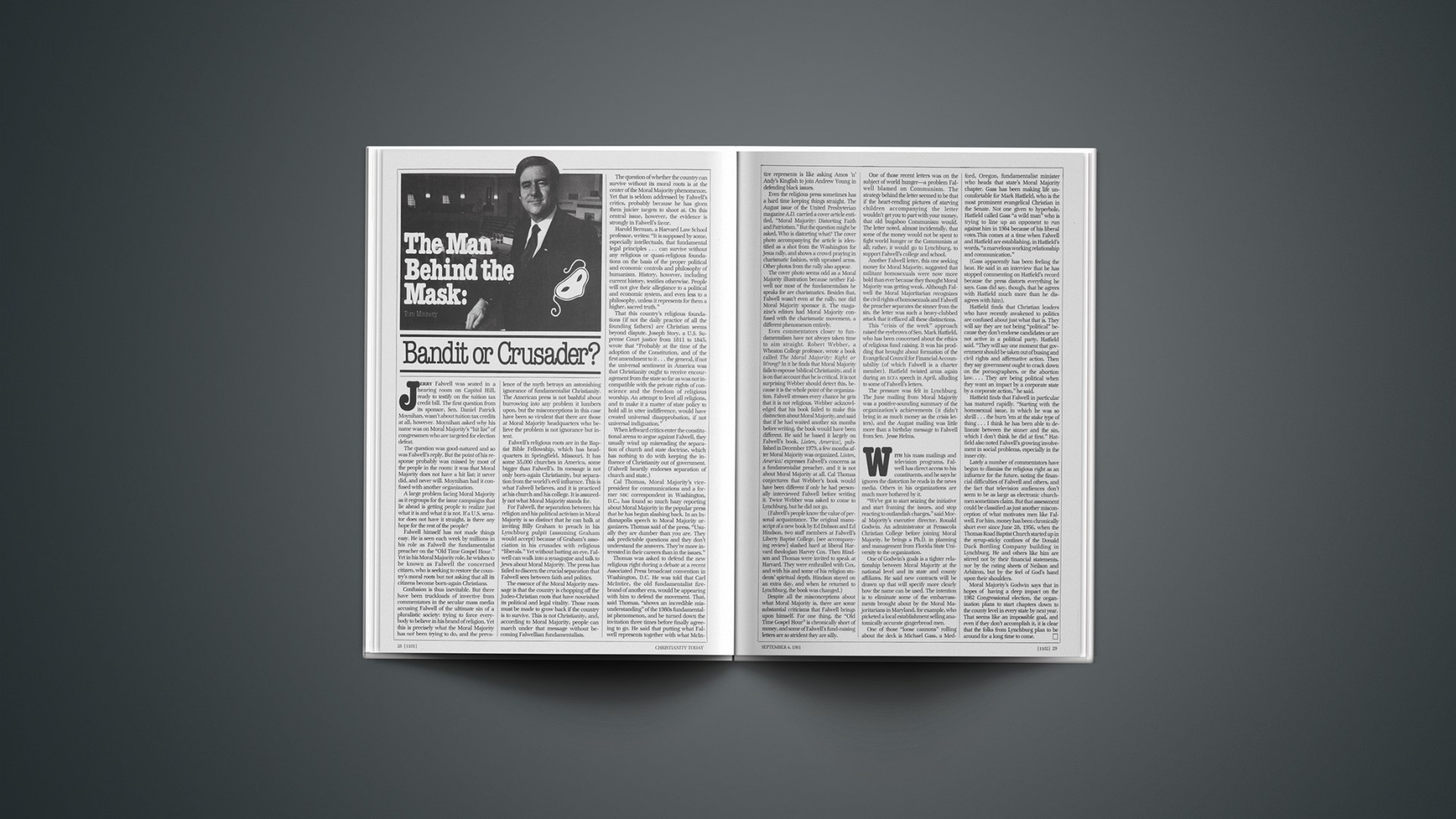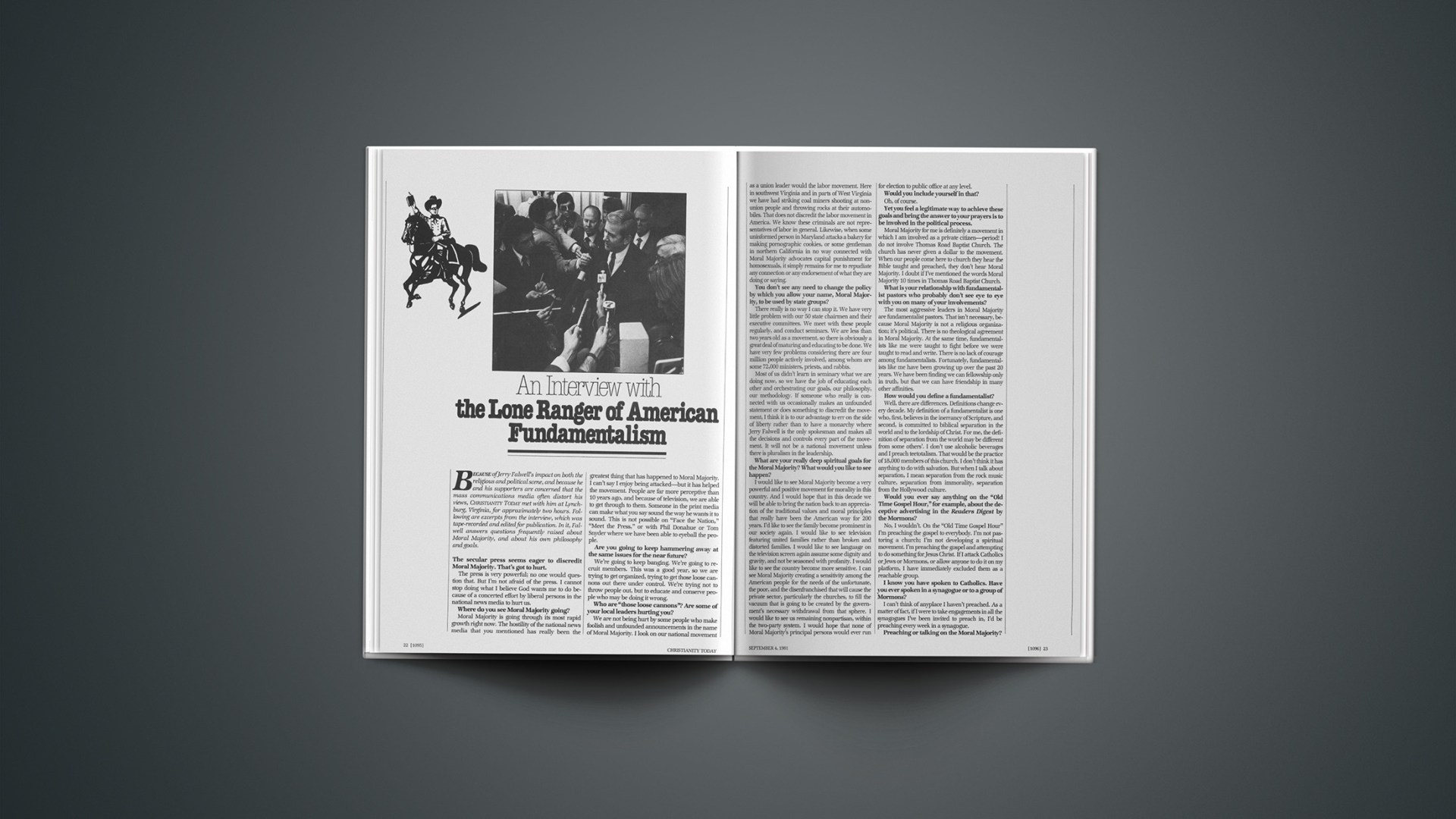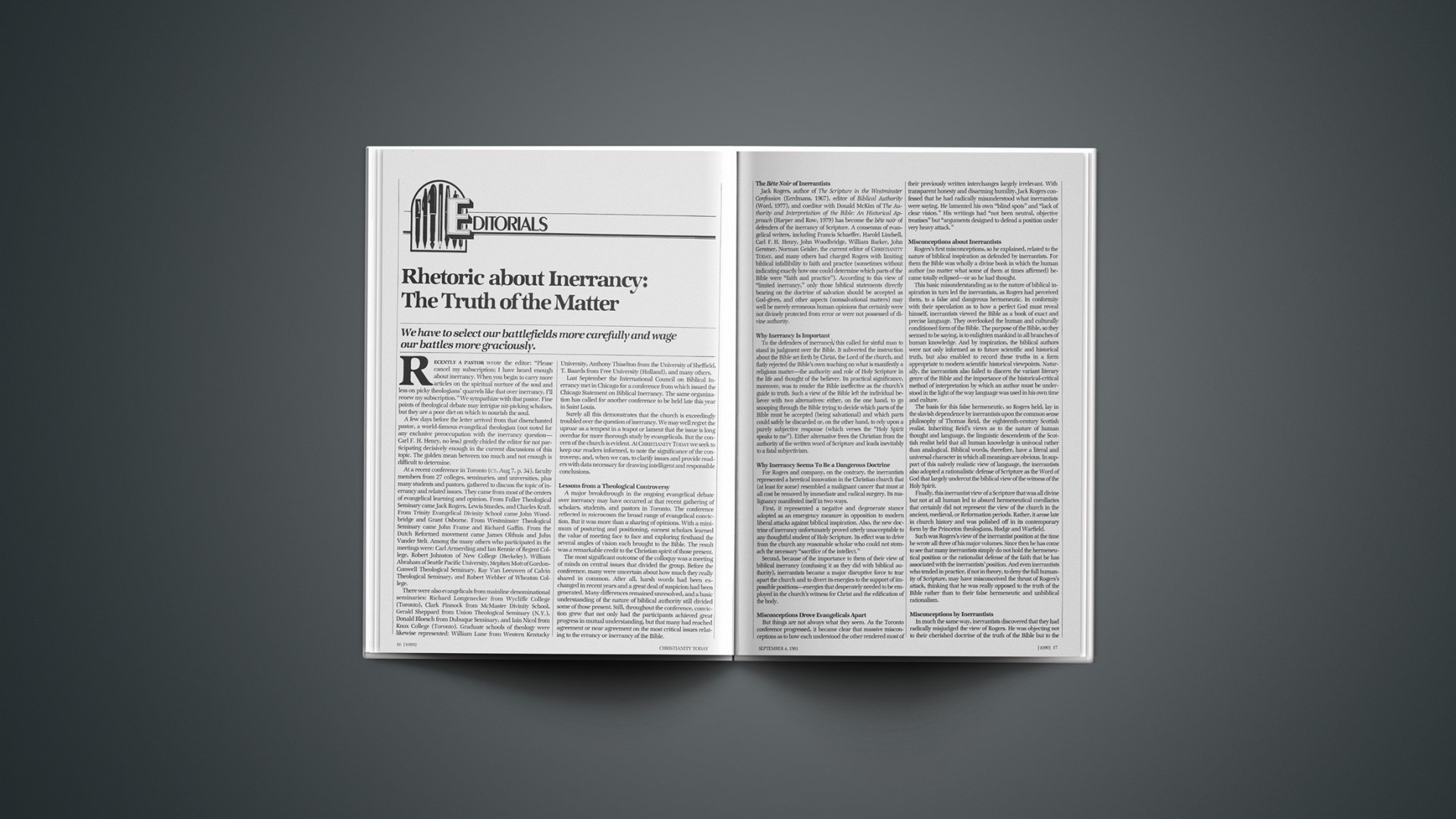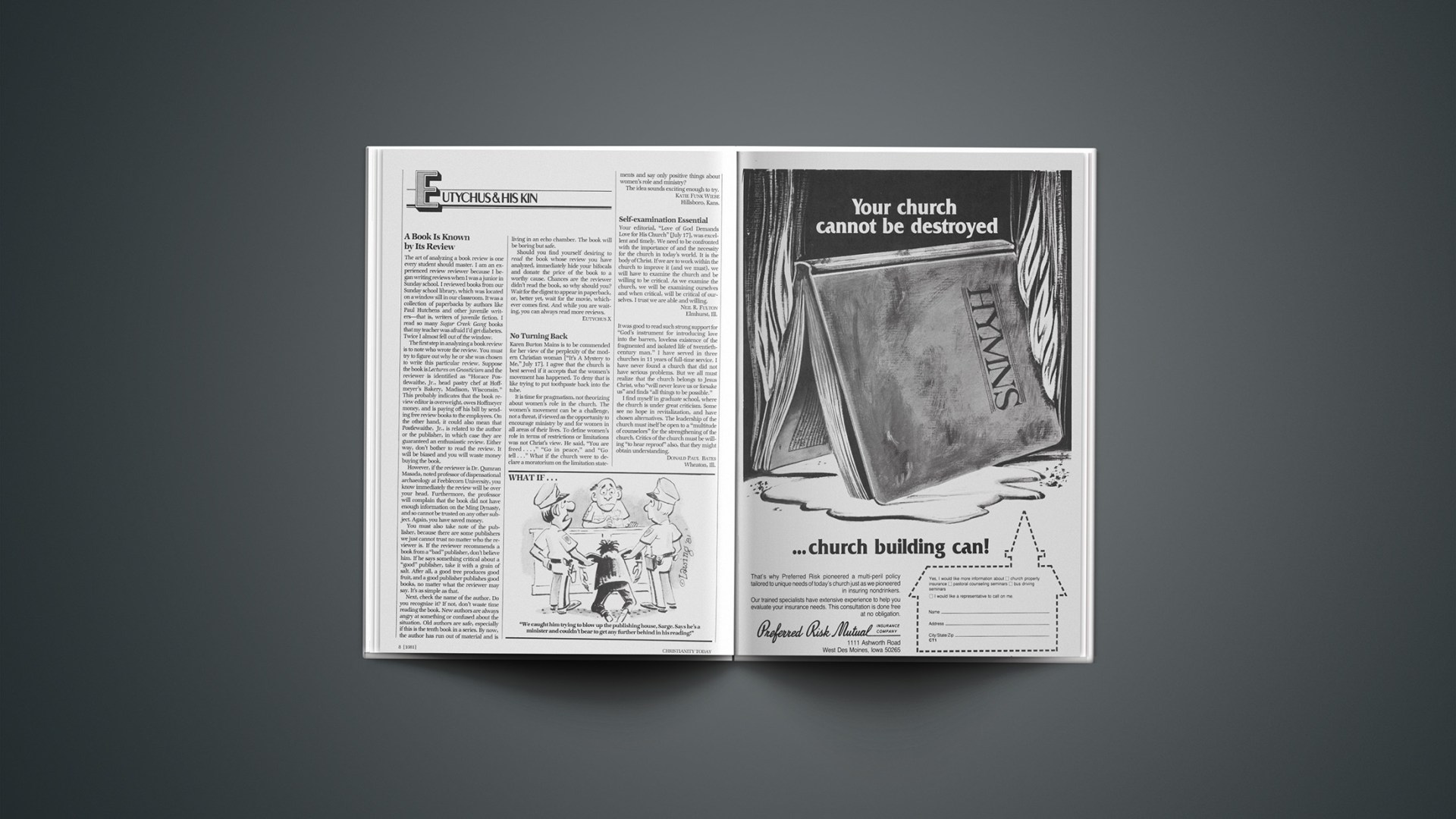We are used to seeing our money lose its value. We are aware, for example, that we earn more dollars now than we did 10 years ago—but we are equally conscious that we can purchase less.
Of course, it is not only money that loses value. Sadly, words also lose their value.
Any good word seems destined to be devalued. Take “righteousness”: it is a word little used now. More often than not it is used derogatorily, as when we speak of someone’s self-righteousness. But righteousness is a key word in Scripture, for God is righteous.
The prophet Amos records the Lord’s passionate appeal: “Let justice roll down like waters, and righteousness like an everflowing stream” (Amos 5:24).
Jesus said, “Blessed are those who hunger and thirst for righteousness, for they shall be satisfied” (Matt. 5:6), and “Blessed are those who are persecuted for righteousness’ sake, for theirs is the kingdom of heaven” (Matt. 5:10).
Yet the world does not see us as having a passion for righteousness. If you were to ask the so-called man in the street what the church is about, the answer would not be “a passion for righteousness.”
On the other hand, we don’t want to be too righteous. The world has persuaded us that to be righteous means missing out on the good things of life, and carries with it the inherent possibility of that all-too-dangerous disease of self-righteousness. The world so easily identifies goodness with gloom, and indulgence with fulfillment. We know on one level that self-indulgence does not lead to ongoing happiness—but on another level, we want to indulge ourselves.
Further, the danger of self-righteousness can loom very large. We know that those who are good can become very hard, priggish, and look down on others. We know that the pure man is a condemnation of the impure, the truthful a condemnation of the liar, the hard-working a condemnation of the lazy man, the honest a condemnation of the dishonest. The judgment is inherent in the distinction. The danger we recognize is that sometimes the person also, to his own damnation, becomes judgmental.
Yet, although we have too often avoided talking about righteousness because our focus has been elsewhere, or because we have seen its dangers, righteousness still remains for us our calling before God.
First, we need to be right with God. Man’s righteousness with God ultimately depends on the righteousness of God himself, on God’s grace. The psalmist saw in Psalm 103:10–14: “He does not deal with us according to our sins, nor requite us according to our iniquities.”
For the Christian, the person of Jesus is the declaration of God’s righteousness. The apostle Paul wrote, “Since all have sinned and fall short of the glory of God, they are justified by his grace as a gift, through the redemption which is in Christ Jesus, whom God put forward as an expiation by his blood, to be received by faith. This was to show God’s righteousness …”
Our rightness with God ultimately depends on God, but too often we center our righteousness on ourselves, our abilities, our righteousness, our achievements.
But we are not right with God until we admit that God is the Lord of our lives, until we admit our dependence upon him. Self-righteousness and pride are deadly enemies. Therefore, we need consistently to seek the Lord’s will, to know our emptiness before him, to realize, as Isaiah said, that he is the potter (Isa. 29:16).
Second, we need to be right in relation to our fellow men. We cannot afford to be caught up in the legalism which can make men hard. As Jeremiah saw, people have always needed the Lord to perform his miracle of changing the external form to an inner motivation—“I will put my law within them, and I will write it upon their hearts” (Jer. 31:33).
It is having the law within that can change our relationship from a relationship to law to a relationship to our fellow men and women within the law. As Jesus saw it, it moves a man from a relationship to the commandment—“You shall not commit adultery”—to a pure relation with a woman. He went past the commandment when he said, “I say unto you that every one who looks at a woman lustfully has already committed adultery with her in his heart” (Matt. 5:27).
The relationship is not to a rule—“An eye for an eye and a tooth for a tooth.” We must be right in our relationship with the people the Lord has made, “for he makes his sun rise on the evil and on the good, and sends rain on the just and on the unjust.” So for the law of retribution Jesus substitutes a relationship to people in very stark terms: “If any one strikes you on the right cheek, turn to him the other also; and if any one would sue you and take your coat, let him have your cloak as well; and if any one forces you to go one mile, go with him two miles” (Matt. 5:39–41).
Third, we need to be right in relation to God’s law. The teaching of situational ethics has made conduct relative. Yet we cannot be true to our traditions and avoid the concept of law. The Decalogue stands at the heart of the covenant, and to the Christian, Jesus says, “Truly, I say to you, till heaven and earth pass away, not an iota, not a dot, will pass from the law until all is accomplished” (Matt. 5:18). We must strive to be right before the law.
The lawlessness of our age also is bringing chaos. The lack of respect for law is widespread, and so not only do we have crime of very destructive proportions, but there is a breakdown of relationships in all areas of society. We have set ourselves above the law. Only when we live under the law can we be right in relation to the law. Only so can society be ordered that we may live in peace. That is true for governments and for the individual. Our Western democracy has depended on this, but in the light of our denigration of law, we see the disintegration of society.
Christians ought to lead the way in respect of the law. Our human nature would push us to sit loose to the law, to set our own rules in matters that are to our advantage. But we know that our responsibility is not to our human nature, but to God.
We need a passion for God’s righteousness. Our calling as men and women of faith is to grow in righteousness. We must put this word and concept of righteousness back into our vocabulary. In our lives, we must strive every day for righteousness, with a passion for purity in our lives before the standards of God’s judgment, with a passion for love in our relationships with our fellow men, with a passion for God’s will and his glory.
These three emphases are well summed up by Micah: “What does the Lord require of you but to do justice, and to love kindness, and to walk humbly with your God?” (Micah 6:8). Only as we have that passion for righteousness will we fulfill our vocation.

